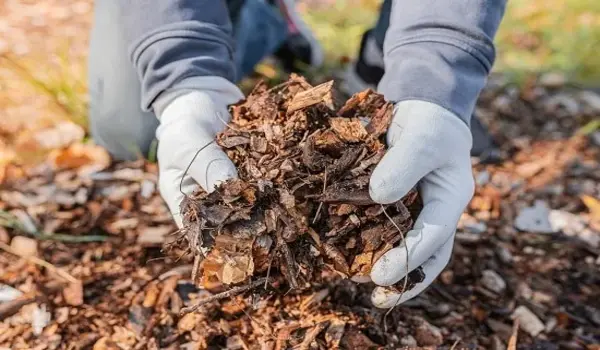What Is Organic Manure?
Organic manure is the decomposition of plant and animal material to enrich the soil. The key difference between organic manure and chemical fertilizers is that while chemical fertilizers provide synthetic forms of nutrients to plants, organic manure provides a natural and slow release of nutrients. It is loaded with necessary nutrients like nitrogen, phosphorus, potassium, and micronutrients that are essential for the growth of plants. There are diverse types of organic manures, each with its specific benefits to the soil and plants.
The main advantage of using organic manure is that it improves soil structure, increases water retention, and supports beneficial microorganisms in the soil. Organic manure helps farmers build a healthy soil ecosystem that promotes long-term agricultural productivity. Different types of organic manure vary in their nutrient composition, and selecting the right one for specific crops can lead to better yield and improved soil fertility.
The Types of Organic Manure and Their Role in Agriculture
Understanding the different types of organic manure and how they benefit can aid in making informed decisions in their crops. Here are a few of the most often used types of organic manure:
1. Farmyard Manure (FYM)
Farmyard manure is one of the oldest and most widely used types of organic manure. It consists of animal dung, straw, and bedding materials, which are mixed together and allowed to decompose over time. This type of manure is rich in organic matter and contains essential nutrients like nitrogen, phosphorus, and potassium.
Benefits of FYM:
- Improves soil structure by adding organic matter.
- Enhances moisture retention in the soil.
- Promotes the development of favorable soil microorganisms
- Enhances soil aeration, thus making it possible for the roots of a plant to penetrate easily
Farmyard manure can be used on a broad range of crops, whether vegetables, fruits, and grains. It is the best fertilizer for soils that contain low levels of organic matter
2. Compost
This composition makes decomposed organic materials including plant residues and food waste items. Compost contains higher organic matter and serves rich nutrients to plants. Although chemical fertilizers break forth all nutrients at a point, compost releases nutrient amounts slowly that supply nutrition with a constant rate in their growth.
Benefits of compost:
- Compost adds required essential nutrients in the soil improving its fertility.
- Adding some structure in the soil promotes moisture retention.
- Reduces the requirement for chemical fertilizers.
- Saves waste as it decomposes organic wastes into productive manure.
- Composting is very beneficial for organic farming and can be utilized on a number of crops like flowers, fruits, and vegetables.
3. Green Manure
Green manure is produced from the growing of specific crops that are primarily grown to be incorporated into the soil. These crops, such as legumes, grasses, and some vegetables, are incorporated into the soil when still green, adding nitrogen and other nutrients.
Benefits of Green Manure:
Adding nutrients to the soil, such as nitrogen, which is necessary for plant growth.
Helps prevent soil erosion due to ground cover.
Improves soil structure and texture.
Enhances soil microbes.
Green manure forms part of crop rotation since it replaces the need of adding certain nutrients that soils lack to support normal plants growth such as nitrates, which most healthy plants need.
4. Vermicompost
Vermicompost is produced by earthworms that break down organic matter into rich, dark, nutrient-packed compost. The process involves feeding organic waste to worms, which then produce nutrient-rich castings that can be used as manure. Vermicompost is very much valued for its high nutrient content and its ability to improve soil health.
Benefits of Vermicompost:
- It is rich in essential nutrients such as nitrogen, phosphorus, and potassium.
- Improves soil structure and enhances water retention.
- Increases microbial activity in the soil, promoting plant health.
- Helps control pests and diseases by promoting a healthy soil environment.
- Vermicompost is a powerful soil amendment that can be used for a variety of crops, including vegetables, herbs, and ornamental plants.
5. Poultry Manure
Poultry manure is the droppings of chickens, turkeys, and other poultry animals. It is one of the richest types of organic manure and is often used to improve soil fertility. Poultry manure is high in nitrogen, phosphorus, and potassium, which are essential for healthy plant growth.
Benefits of Poultry Manure:
- Provides a high concentration of nutrients, especially nitrogen.
- Improves soil fertility and structure.
- Helps promote strong root development and overall plant health.
Increases soil microbial activity.
Livestock manure suits crops with a high need for nitrogen, like the leafy vegetables and the legumes.
6. Animal Bone Meal
The bone meal is the composition of bones from animals who are processed to powder or fine grains. It also contains phosphorus and calcium essential nutrients for growth and development for plants.
Advantages of Bone Meal:
- Increases flowering and root development.
- Improves the soil structure by incorporating the organic matter.
- Offers phosphate and calcium slowly to plants.
- Promotes strong healthy roots in plants.





